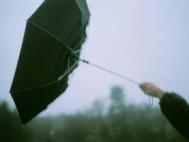a,an,the冠词的用法
【特指】某个或某些确定的人/物,用【the】。
We went to the zoo and saw the kangaroos. (特指那个动物园里的那群袋鼠,而不是泛指袋鼠这种动物。)
04 不用the
--- 不用不用不用 ---
- 青山的注解 -
刚才把不定冠词【a/an】与【the】放在一起讲,是要突出对比。
下面的内容,则是针对【the】,也是考生最喜欢滥用的冠词。
为什么叫滥用呢?考生有事没事就要加个the,有时候没话说、结巴了也要来个the填补一下空白。简直成了常态。
相比之下,官方教程着重强调的是【不使用】the的情况。不使用,才是常态。【使用】the的,反而都是例外。
- 泛指 -
【泛指】一类事物,而不是特指其中的某个或某些确定的个体时,通常使用复数或不可数名词,不带冠词。
Birds eat worms.
Water freezes at 0°C.
Children need a lot of sleep.
- 床,工作,家 -
(尽管官方说没规律,但我们可以自己想办法创造规律来帮助记忆。比如:有些人,比如网红博主,或写手,是在家里的床上工作
含【bed, work, home】的短语通常【不用】the。例如↓
go to bed / be in bed
go to work / be at work / start work / finish work
go home / be at home / get home / stay at home
- 学校,监狱,医院 -
(看我瞎编:小明在学校霸凌the同学结果the同学把他告了;小明进监狱后被大佬霸凌结果进了医院。医院的医生是the同学的父亲但他心无芥蒂地救治了小明同学然后大家冰释前嫌,幸福、快乐地生活在了一起。)
含【school, university, prison, hospital】的短语通常也【不用】the。例如↓
start school / go to school / be at school
go to university / be at university
be sent to prison / go to prison / be in prison
go to hospital / be in hospital
(例外又来了!)但如果某人只是【造访/去到】以上地点,而不是【其中的】学生/囚犯/病人等等,则【要用】the。例如↓
My son has started school now. I went to the school to meet his teacher.
I went to the prison a lot when I was a social worker.
I'm at the hospital. My sister has just had a baby.
(这个例外其实算不上太例外,它符合前文讲过的“已知”规则:当听者【已知】说话者特指的是某个确定的事物,用【the】。因为之前已经谈论过,或因为只有这一个事物。)
- 地名 -
形容大陆、大部分国家、城镇、山川湖泊、大学时,通常【不用】冠词。例如↓
Africa, Asia, Europe
India, Ghana, Peru, Denmark
Addis Ababa, Hanoi, New York, Moscow
Lake Victoria, Lake Superior, Lake Tanganyika
Mount Everest, Mount Kilimanjaro, Mount Elbrus
Cardiff University, Harvard University, Manchester University
- 例外地名 -

 实用的生活知识参考!
实用的生活知识参考!





